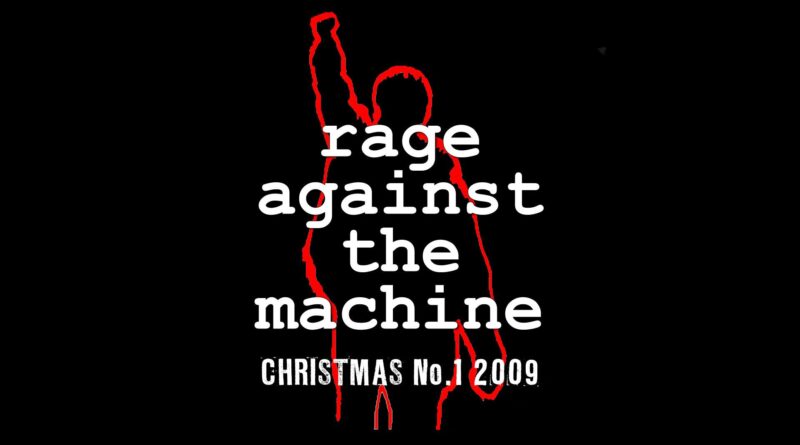HEAVY MUSIC HISTORY: The Rage Factor
The 2000’s were all about the birth and rise of the reality talent show in the UK. It began with Pop Idol in 2001, which not only put the spotlight onto the format but also brought to the fore music mogul Simon Cowell, whose ‘Mr Nasty’ persona would give televisions audiences the perfect ‘love to hate’ individual. It evolved into The X Factor in 2004, an original Cowell creation which would grow even bigger; the show drew millions of viewers each week as the competition progressed and, to its credit, it produced a smattering of big names, the obvious one being boyband sensation ONE DIRECTION. Alongside The X Factor, Cowell also created the Got Talent franchise (Britain’s Got Talent, America’s Got Talent etc) and there was also the 2002 one year edition of PopStars: The Rivals, which brought about successful girl group GIRLS ALOUD.
The X Factor would intentionally finish a series in mid-December, with the winning artist or group releasing their first single immediately afterwards in the hope of claiming the coveted UK Christmas Number One Single. Original winner Steve Brookstein was held off by the 20th anniversary incarnation of BAND AID in 2004, but when Shayne Ward claimed the spot the following year, it began a run of four consecutive years where the winner of the show would go on to be Christmas Number One. It got to the point where bookmakers stopped taking bets on the outcome and, fifteen years ago in 2009, latest champion Joe McElderry was almost a foregone conclusion to pick up the gong.
Only, the monopoly had begun to wear thin, and somebody decided to do something about it.
Radio DJ Jon Morter, inspired by a 2002 online campaign to get English singer-songwriter John Otway another chart hit in time for his 50th birthday (Otway’s song Bunsen Burner would reach #9 as a result), had actually attempted to spoil the X Factor’s streak the year before McElderry’s triumph, seeking to have Rick Astley’s Never Gonna Give You Up topple then-winner Alexandra Burke. Attracting 30,000 people to the ‘Ultimate Rickroll’ Facebook group in its first week, the song reached #3 a week before the charts finished for Christmas, but ended at 73 after Sony, who owned the song, deliberately lowered it as they believed ‘the song’s tanking was ridiculous and rigging a contest was unfair on the other artists’. Undeterred, Morter regrouped and came back the next year with new knowledge on how the charts worked and, importantly a new song – Killing in the Name, the iconic anthem by RAGE AGAINST THE MACHINE.
The premise was simple – from December 14th to December 19th that year, people were encouraged to download Killing in the Name from iTunes or another official digital music platform as much as possible, with the Christmas charts taking place on Sunday 20th. The campaign was launched in early December and quickly went viral; by the time sales would count the page had over 750,000 members and ended up close to a million. When Cowell denounced the campaign as ‘stupid’ and ‘cynical’, the movement only grew bigger, eventually attracting the attention of RAGE AGAINST THE MACHINE themselves. Guitarist Tom Morello expressed his support, saying it would be a ‘wonderful dose of anarchy’; other famous musicians such as Dave Grohl, MUSE and THE PRODIGY backed the campaign. It even found favour with original X Factor winner Brookstein and Paul McCartney, the latter of whom had appeared on The X Factor with that year’s finalists. Further notoriety ensued when RAGE AGAINST THE MACHINE performed the song live on BBC Radio 5Live and, after agreeing to censor the song, went against it, forcing a hasty pulling of the broadcast and apologies for the expletives aired live.
On December 20th, a nation tuned in to hear the outcome on BBC Radio 1. Joe McElderry’s effort, a cover of Miley Cyrus’ ‘The Climb’, achieved 450,838 sales in the week leading up to Christmas.
RAGE AGAINST THE MACHINE? 502,672.
In the end, this wasn’t even a close call – it was a decimation. The X Factor’s grip had been broken in stunning fashion, even more impressive given Killing in The Name was at #1 on downloads alone as opposed to the downloads and physical singles combination of McElderry. It remains the fastest selling digital track in UK music history, a record likely to remain given the culture of music streaming today.
McElderry reached #1 the week after and Killing in the Name dropped out of the charts as quickly as it had arrived, but the purpose had been completed. Keeping a promise made during the campaign, RAGE AGAINST THE MACHINE played a free show at London’s Finsbury Park in June 2010 to 40,000 punters; the show was named The Rage Factor and recorded and later released as The Battle of Britain, part of the band’s 20th anniversary for their 1992 self-titled debut which features Killing in the Name. At the event, Morter and his wife Tracy were handed a cheque for £162,713.03 made out to UK homeless charity Shelter, the proceeds from the single and the JustGiving campaign running parallel with the music effort
In the years that followed, more attempts were made to get novelty songs to Christmas Number One, ranging from tracks by BIFFY CLYRO (Many of Horror) through to The Trashmen (Surfin’ Bird) and even John Cage’s 4:33, a track of total silence. However, as one might expect, these wouldn’t gain much traction, generally viewed as copycat efforts and never holding the same interest as the original. But then, how could they? What happened in the winter of 2009 was a true one-off, an event of such wonderment that it could never hope to be replicated, no matter how much time passes.
Like RAGE AGAINST THE MACHINE on Facebook.
